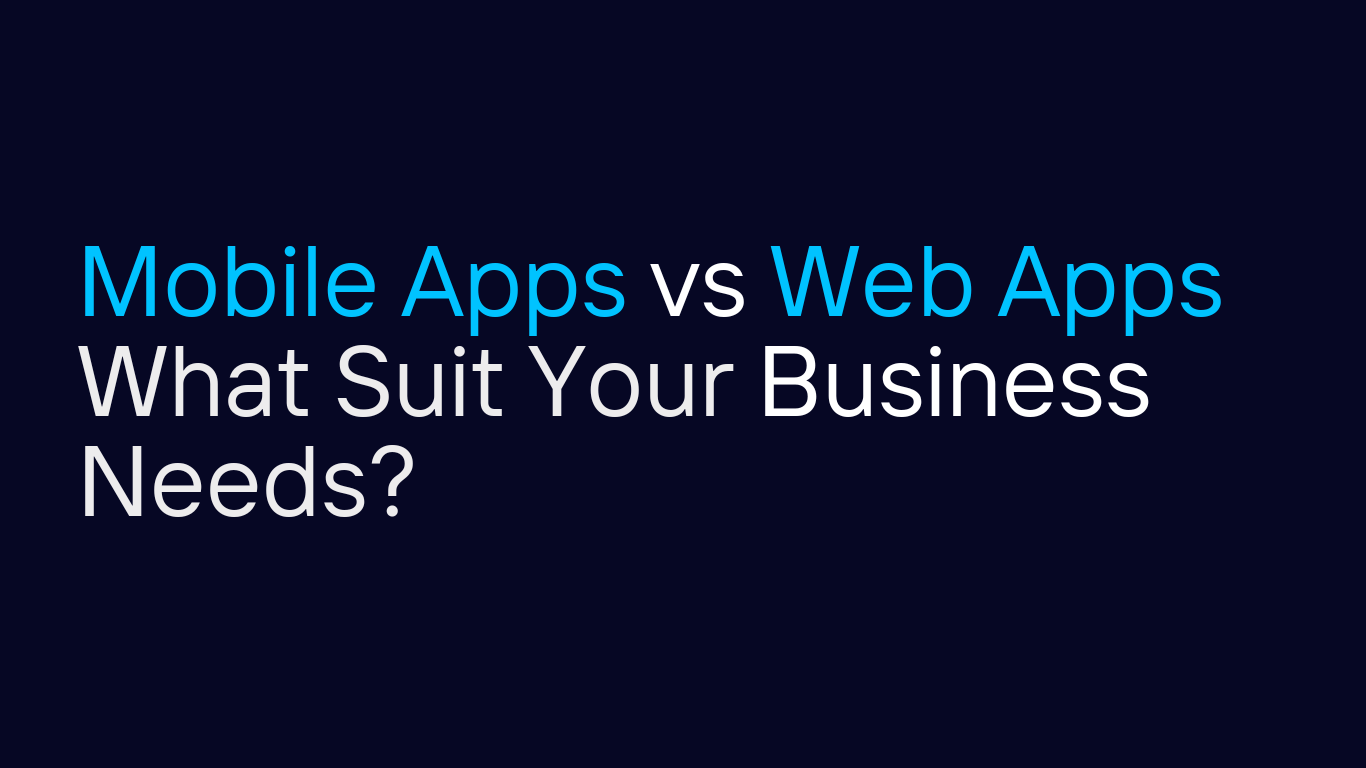Mobile Apps vs Web Apps - What Suit Your Business Needs?
In the digital age, businesses have a critical decision to make when it comes to their online presence: should they invest in a mobile app, a web app, or both? With consumers relying heavily on their smartphones and tablets for various activities, the debate between mobile apps and web apps has become increasingly important. Each option has its own set of advantages and considerations, making it essential for businesses to understand their specific requirements before making a choice.
Mobile Apps:
Mobile apps are applications specifically designed to run on mobile devices, such as smartphones and tablets. They are downloaded and installed directly onto the device from app stores like the Apple App Store and Google Play Store. Here are some key points to consider about mobile apps:
-
Enhanced User Experience: Mobile apps offer a highly optimized experience tailored to the device's capabilities. They can leverage device-specific features such as cameras, GPS, and sensors to provide a seamless and interactive user experience.
-
Offline Accessibility: Mobile apps can function partially or fully without an internet connection. This is particularly advantageous for tasks that need to be performed on the go or in areas with limited connectivity.
-
Push Notifications: Mobile apps can send push notifications directly to users' devices, allowing businesses to engage with customers in real-time and promote their services.
-
Branding and Loyalty: A well-designed mobile app can contribute to brand loyalty and recognition, as users have the app icon right on their home screens.

Web Apps:
Web apps are accessed through web browsers on various devices, including desktops, laptops, smartphones, and tablets. They are not downloaded or installed like mobile apps but are accessed by entering a URL into a browser. Here are some key points to consider about web apps:
-
Cross-Platform Compatibility: Web apps work across different platforms and devices, making them easily accessible to a broader audience without the need for multiple versions.
-
Cost and Maintenance: Developing and maintaining a single web app can be more cost-effective than building separate mobile apps for different platforms.
-
Instant Updates: Changes or updates to a web app can be implemented instantly, ensuring that users always have access to the latest version without requiring downloads.
-
Ease of Distribution: There's no need for users to download and install web apps, simplifying the distribution process. Users can access the app simply by entering the URL in their browser.
Choosing the Right Fit:
When deciding between a mobile app and a web app, consider the nature of your business and your target audience's preferences:
-
Business Type: If your business relies heavily on providing real-time updates, notifications, and device-specific features, a mobile app might be the right choice.
-
Audience Reach: If you aim to reach a broader audience across various devices and platforms, a web app is a more versatile option.
-
Budget: Consider your budget for development and maintenance. Developing a mobile app for multiple platforms can be costlier than creating a responsive web app.
-
Offline Access: If your users need to access your services offline, a mobile app could be more suitable.
In conclusion, both mobile apps and web apps have their own strengths and are suited for different business needs. It's important to carefully assess your goals, target audience, and available resources before making a decision. In some cases, having both a mobile app and a web app might be the best approach to cater to the preferences and habits of a diverse user base. Ultimately, the choice between the two depends on how you want to engage with your audience and provide them with a seamless digital experience.





